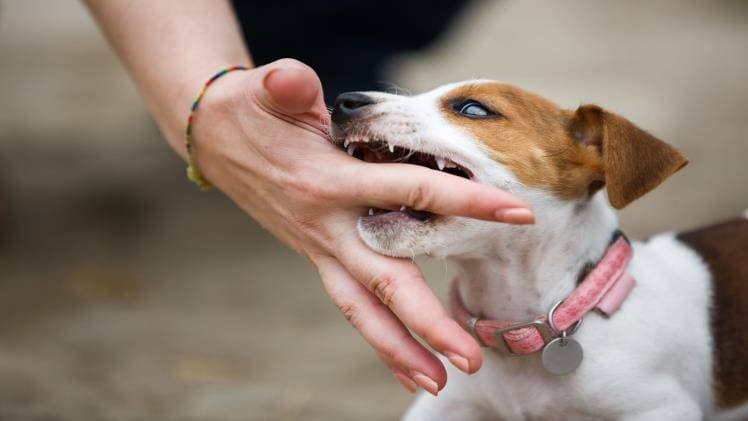How To Keep Your Puppy From Biting

Bringing home a new puppy is an exciting experience, but it also comes with its challenges. One common issue that puppy owners often face is dealing with their puppy’s biting behavior. Puppies explore the world around them with their mouths, and while this behavior is natural, it can become a problem if not addressed early on. You need to know some effective strategies to keep your puppy from biting, which will help you raise a well-behaved and happy canine companion.
Understanding Why Puppies Bite
Before we dive into the techniques for preventing puppy biting, it’s important to understand why puppies bite in the first place. Puppies are born with sharp teeth, and they use their mouths to explore, play, and learn about their environment. Biting is a normal part of their development. Puppies also bite during play as a way to engage with their littermates or their human family members. However, it’s crucial to teach them bite inhibition – the ability to control the force of their bite – to prevent unwanted aggression or injury as they grow. How can you stop your puppy from biting? There are a number of techniques, including these.
Start with Socialization
Socialization is a critical aspect of puppy training that can help reduce biting behavior. Exposing your puppy to various people, animals, and environments from an early age helps them become more confident and less prone to fear or aggression. Socialization also teaches them how to interact with others appropriately. Enroll your puppy in a puppy socialization class or organize playdates with other well-behaved dogs. This exposure will help them learn proper play behavior and bite inhibition from their peers.
Use Positive Reinforcement
Positive reinforcement is a highly effective training method that involves rewarding your puppy for good behavior. Whenever your puppy behaves well and refrains from biting, reward them with treats, praise, or affection. Be consistent and provide immediate rewards to reinforce the desired behavior. Over time, your puppy will associate not biting with positive outcomes, making them more likely to continue this behavior.
Teach Bite Inhibition
Teaching bite inhibition is crucial to ensure your puppy understands the strength of their bite. When your puppy bites you or plays too roughly, let out a high-pitched “ouch” or yelp to mimic the way their littermates would react. This will startle them and make them realize that they’ve hurt you. Immediately cease play and ignore your puppy for a short period to convey that biting results in a loss of attention. This consistent feedback will help your puppy develop bite inhibition and learn to control the force of their bite.
Provide Appropriate Chew Toys
Puppies have a natural urge to chew, and providing them with appropriate chew toys can redirect their biting behavior away from your hands and furniture. Opt for toys that are designed for puppies and made of safe, durable materials. When your puppy starts to bite or chew on something they shouldn’t, replace it with one of their toys. Praise them when they chew on their toys instead of your hands, shoes, or other forbidden items.
Establish a Routine
Puppies thrive on routine and consistency. Establishing a regular daily schedule for feeding, playtime, and potty breaks can help reduce biting behavior. When your puppy knows what to expect, they are less likely to become overly excited or anxious, which can lead to increased biting. Ensure your puppy gets plenty of exercise and mental stimulation through play and short training sessions to help tire them out and reduce the urge to bite.
Use Timeouts
If your puppy continues to bite despite your best efforts, implementing timeouts can be an effective way to curb their behavior. When your puppy bites too hard or refuses to stop biting during play, calmly and gently remove yourself from the situation. Place your puppy in a designated timeout area, such as a playpen or a separate room, for a brief period (around 30 seconds to a minute). This break will help your puppy understand that biting leads to a loss of playtime and attention.
Keeping Your Puppy From Biting
Raising a well-behaved and happy puppy involves addressing their biting behavior early on. Remember that patience, consistency, and positive reinforcement are key to successfully preventing excessive biting. By socializing your puppy, teaching bite inhibition, providing appropriate chew toys, establishing a routine, and using timeouts when necessary, you can guide your puppy toward becoming a well-mannered adult dog. With dedication and love, you’ll enjoy a strong bond with your furry friend that’s built on trust and respect.